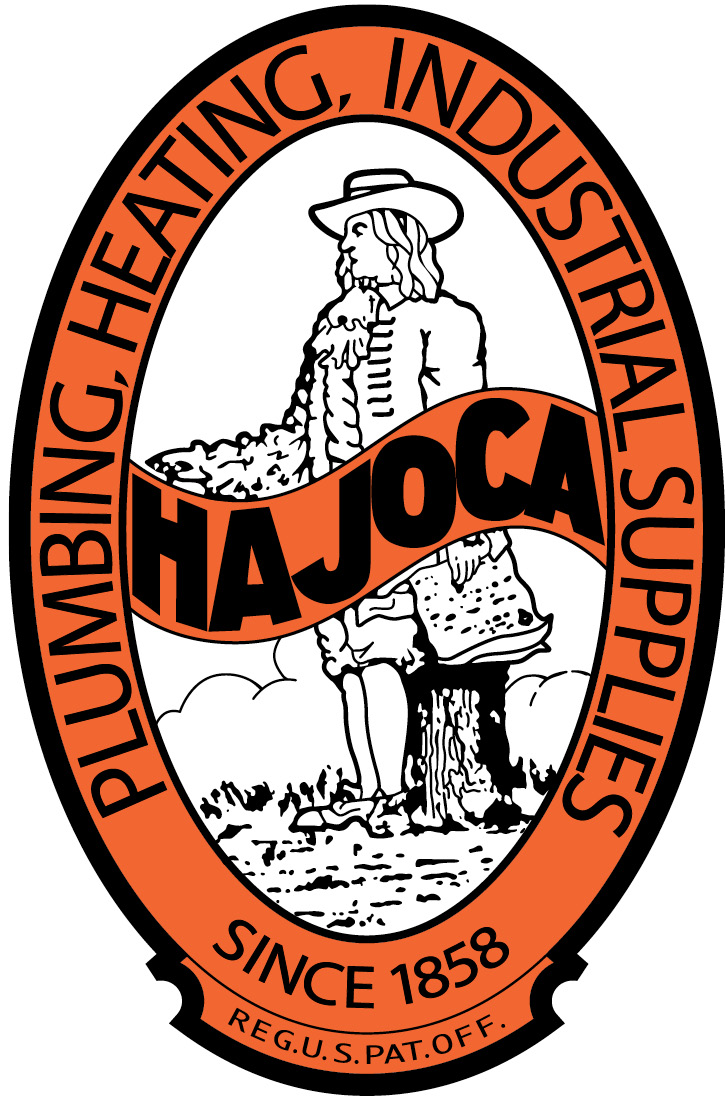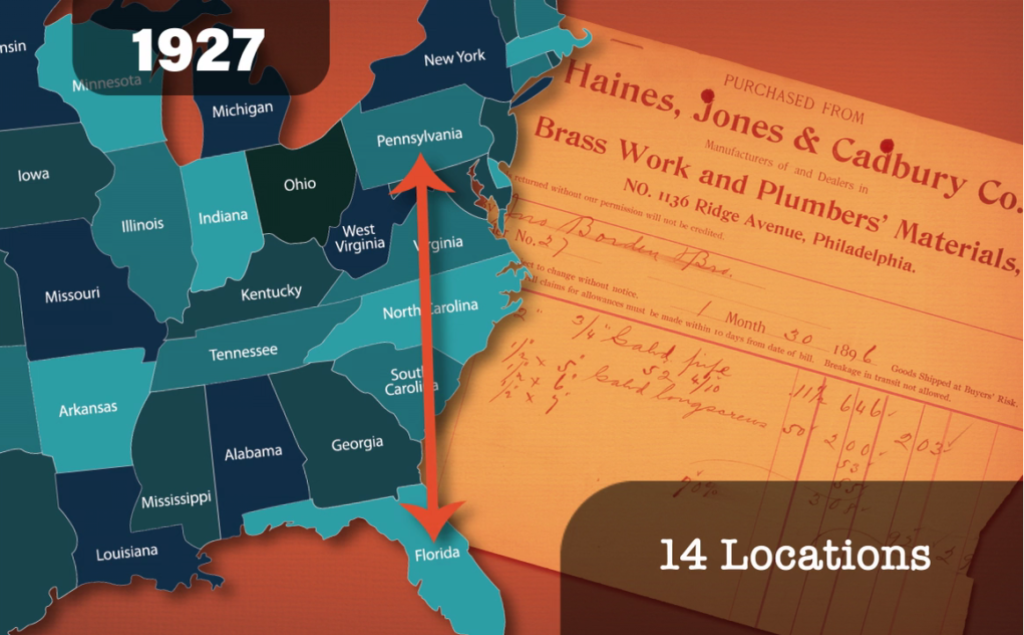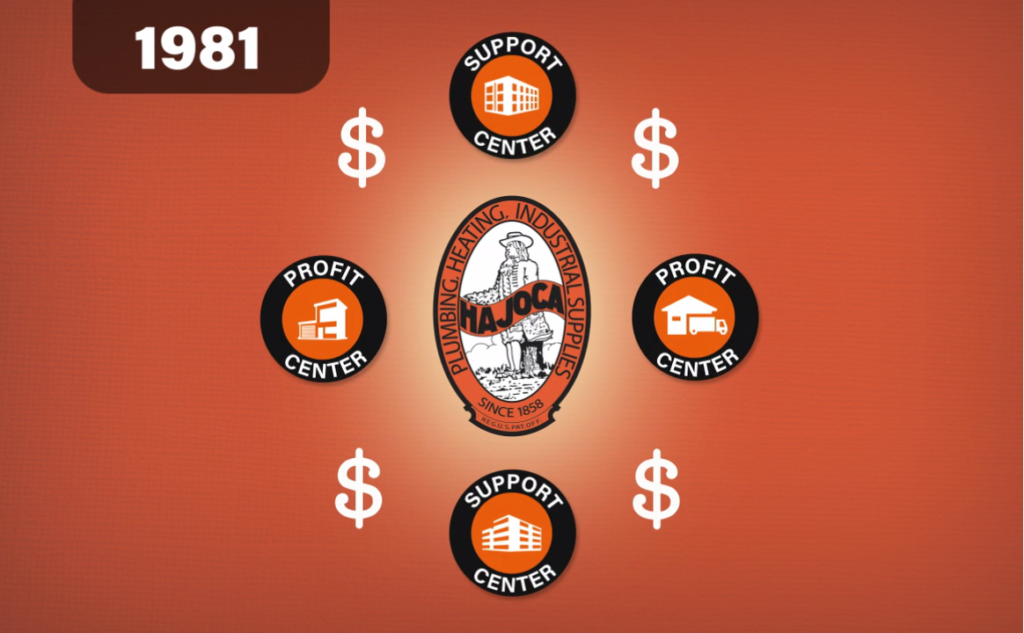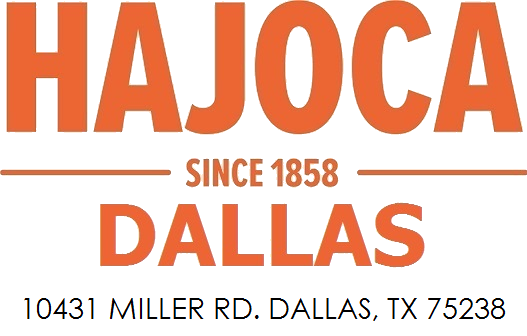
Civilization has made significant progress since 1858 when Hajoca was founded.
Central heat and air conditioning, indoor plumbing, luxurious and safe kitchens, and good sanitation: Hajoca helped build these amazing improvements and they have fueled Hajoca’s success.
Today, Hajoca sets the standard in the wholesale distribution of plumbing, heating and air conditioning, industrial pipe-valves-fittings, pool and waterworks supplies for residential, commercial, industrial and infrastructure construction.
Hajoca is a company based on the principles of “Service, Integrity, Reliability,” and on relationships of trust and support with employees, customers, and suppliers. Hajoca is all about the people, who give us our advantage, and who will guide us successfully into the future.
On July 10, 1858, William S. Cooper took the $202 he saved from his wages as foreman of a local brass foundry and started his own business grinding ground key stops for the plumbing trade in Philadelphia, PA. Thomas J. Jones, a master bricklayer, joined Cooper in 1862 as a junior partner in the firm of Cooper & Jones, where he assumed full control of a new phase of business – manufacturing sanitary fixtures and other plumbing material. During this time, many businesses were forced to close due to the disruption caused by the Civil War. Cooper & Jones prevailed and by 1865, demand for the company’s products had increased significantly with several hotels promoting patronage by advertising “a bathtub in every room.”
Joel Cadbury joined the firm on New Year’s Day in 1867, forming Cooper, Jones & Cadbury. Business continued to boom and several years later, the company moved into a five-story building on Ridge Avenue in Philadelphia.
In 1883, William H. Haines joined the company. One year later, founder William Cooper withdrew and the company’s name changed to Haines, Jones & Cadbury. Several years later, the first two letters of each of the principal names were combined to give the company its trade name – HA – JO – CA.
Hajoca’s Quaker influence was very strong – William Haines, Joel Cadbury and J. Harvey Borton, who became Hajoca Corporation’s first president, were members of the Society of Friends. In 1893, Hajoca honored William Penn, the most prominent Quaker in Pennsylvania history, by adopting as its trademark the 37-foot tall statue of him, which stands atop Philadelphia’s City Hall. This US trademark is one of the oldest in existence today.

In the years following World War I, business was booming and taxes were low. Haines, Jones & Cadbury Co. was one of the first Philadelphia distributors to replace horse-drawn carts with motor trucks. By 1927, Haines, Jones & Cadbury had 14 branches from Philadelphia to Florida; and in March of that year, Haines, Jones & Cadbury merged with three well-known companies to form Hajoca Corporation, becoming one of the largest plumbing, heating and industrial supply houses in the United States. The company then moved its headquarters and showroom to 3025 Walnut Street, which is now registered as a historic landmark.

In 1928, William (Bill) Brecht became president. Bill guided the company through the dark days of depression, the challenges of the recovery, the Second World War, the post-war boom and the Korean conflict. He retired in 1956 and J. W. St. Clair became president. In the years that followed the war, the surge in the nation’s birth rate and an increase in construction created a boom market with massive shifts in population and expansion into suburban areas. The increase in demand for the products HAJOCA supplied led to stiffer competition from other distributors. To meet these challenges, Hajoca’s management acted quickly by streamlining the organization and reducing their operations to 20 branches, strategically located from Philadelphia to Georgia. And after 99 years in Philadelphia, Hajoca’s general and corporate offices were moved to a smaller building in Ardmore, PA.
In 1967, Hajoca continued its southern expansion into Orlando, Florida. While keeping the Hajoca name, the company merged with Gable Industries, Inc in order to gain the resources necessary for continued growth. Throughout this time and in the years that followed, company presidents such as Ed Breeze; John Spiegle, Jr. (who began his career as a counterman); Robert Chute; and Alfred “Duke” Waddell provided Hajoca with the leadership necessary to meet the challenges of the growing business.
In 1981, Hajoca became a privately owned company, and Robert F. Parsons was named president. It was during this time that the company adopted its model of decentralized operations, backed by a strong commitment to its entrepreneurial philosophy. Throughout the 1980’s, the company expanded significantly through acquisitions; and, consistent with the decentralized business model, the ‘new” profit centers continued to operate using the same names they had when they were acquired, preserving the local identities, the people and the business practices that customers came to know and value.
During the 1990’s, Hajoca Corporation continued to grow and entered the pool industry in Florida. After a successful tenure as president, Bob Parsons retired in 1996 and was succeeded by Richard J. Klau, who further advanced the company, not only through acquisitions but through employee training and technological development. With his strong support team, Rick led Hajoca into the new century and expanded its North American operations into Canada.
In 2009 Rick Fantham became President/CEO of Hajoca as Rick Klau moved into the role of Chairman. Rick Fantham was president of Emco and has continued on in the role. Both companies have continued to grow and flourish under Rick Fantham’s leadership.

Hajoca Corporation will continue to grow through acquisitions and new starts and provide the training necessary to raise the standards in the wholesale distribution of plumbing, heating and air conditioning, industrial pipe-valves-fittings, pool and waterworks supplies for residential, commercial, industrial and infrastructure construction.
“We have survived and thrived for nearly 160 years because of the hard work, high expectations, and dedication of our employees…coupled with the support and loyalty of our customers and suppliers. Hajoca’s simple business model of decentralized profit centers, committed to superior customer service…reinforced with profit sharing for all associates…will continue to serve us well going forward. We are proud of our Hajoca history, and by extension, the history of the many firms we have been fortunate to join forces with…and despite recent marketplace challenges, we are confident of our role in the industry today…and we are energized by our prospects for growth and world class performance into the future.” ~ Rick Klau, Chairman
